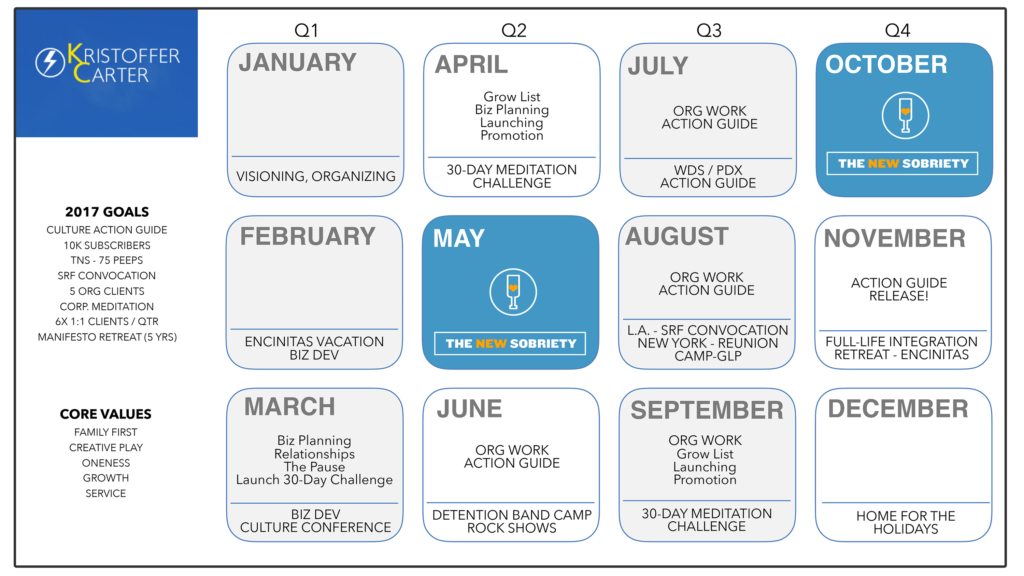
The ability to give and receive feedback is a skill that comes up more than any other with my 1:1 and organizational clients. As a consultant, I find it much easier to facilitate discussions and workshops on the topic than I do actually receiving and responding to feedback myself.
I don’t think it’s necessarily easy for anyone, but I do believe it’s crucial to our success. An executive client fears that any attempt to offer feedback to his fellow executives will get him “…labeled as an a-hole”. Many other typically strong leaders crumble under the weight of direct feedback. Others refuse to hear it.
That is craziness, and it squanders a growth opportunity. There is literally no improvement without feedback. If you’re only surrounded by fans or worse, Yes Men, how are you supposed to know when you’re acting or speaking from a place of authentic truth?
Fortunately for me, I’m married to a strong woman who’s never had any trouble offering direct, constructive feedback. 🙂
Reading a piece of feedback the first time is often painful because the ego wants to shout “Nuh-UH!” It stings a little, even when you know it’s true.
How often do we see some small criticism land in our inbox that makes us want to lash back?
The first read-through is only to let the ego process it. This is why strategies for offering constructive feedback to our teammates and partners is so valuable. Note: I’d recommend the “SCARF” model.
You can tell constructive from destructive feedback by what comes from it. This week, I received two very powerful, yet initially cringe-y pieces of feedback.
In an effort to make all of us as uncomfortable as possible, I wanted to share these and how they were processed. My hope is they give you some nudge to view feedback as a growth opportunity.
Scenario #1 – Video Feedback
In 2015 I submitted a video to Wisdom 2.0 for a talk What Steve Jobs Learned From Paramahansa Yogananda. It was voted on, and I gratefully delivered that full talk at the conference. Last week, the Official Autobiography of a Yogi Facebook Page (133K followers) shared the submission video. After a challenging day I was pumped by such a beautiful bright spot.
This morning I woke up to a powerful piece of feedback that initially rattled me.
03.11.17. YouTube Commenter.
I come from a family of 3 generations of Paramahansa Yogananda devotees. As a Kriyaban, I would not call myself a Yogi just as yet. You should also be careful in the way you market yourself. “A Kriyaban yogi with SRF” implies you are formally involved in the organization in some way.
Though, you are not. SRF is a non-for-profit organization. It is good that you have discovered Sri Paramahansa Yogananda’s teachings and are applying it to your life. But you should not use these sacred techniques in a consumer-way…
These are scientific techniques taught by our guru, Sri Yogananda to help souls transform their journey in life to have Self-Realization, and discover what Maya truly is. Even Steve Jobs with all of his success did not publish the reasons why he was so fond of Sri Yogananda, because this kind of attunement and devotion is sacred.
It is good that you have found Guru ji’s teachings. Just be weary about deciding to publish and market what Steve Jobs learned from Sri Yogananda, as Jobs never by himself shared the founding reasons for being such a devout devotee of Sri Paramahansa Yogananda. It is a mystery to everyone.
He was a devotee of Sri Yogananda because of an inner spiritual yearning that this Maya that we are trapped in can never provide to us in a material form. We come from God and the happiness we seek in this material world can only only be quenched once we return to God.
It is a powerful fact that Guruji teaches us. Nothing in this world of delusion can ever quench our thirst for true happiness. How can you teach that to business professionals whose happiness is dependent on money and profit? That is the true reason Steve Jobs read ‘Autobiography of a Yogi’ to remind himself that this world is delusion. Maya is very powerful and that is why Sri Yogananda wrote ‘Autobiography of a Yogi’ It was a reflection on his inner spiritual journey.
RESPONSE, STRATEGY

Comment Reply on YouTube. First, thank you for your time in offering this very wise feedback. I truly appreciate it (devotee to devotee). I submitted this short video and topic, I feel, directly as a result of a powerful meditation with our guru’s inspiration.
I don’t consider “What Steve Jobs Learned from Yogananda” to be my topic. I wanted to explore much of what has been written about this topic from an SRF devotee’s perspective. Please note: I was not compensated in any way for delivering this speech at the conference, and never personally profit by sharing any of Master’s teachings. I interviewed SRF Minister Brother Bhumananda for this full talk, and discussed these sensitive issues with him before giving the talk.
I am very sensitive to not presenting myself, or our guru’s teachings in any way that misrepresents my affiliation with SRF. (Other than as a student and passionate fan of gurudev’s work.) I too have grappled with whether it’s appropriate at this early stage of my spiritual development to call myself a yogi. But my understanding is that one who pursues the Divine union may label themselves ‘yogi’ by form and function.
It is not intended to indicate any false sense of attainment. I feel the same about telling people I’m a Kriyaban.
As we all must, I worked hard to prepare myself for the Kriya technique, practice daily to the best of my ability, but still feel I am maybe 1 or 2 baby steps into the path. 🙂 My intention with sharing the path I’m on has only ever been to exalt the guru’s work, and path to self-realization and a relationship with God. I recall Master’s story of one of his final college assignments, where he spoke only of what his guru taught him. What little talents I’ve amassed in this life can be utilized as a messenger for this great, life-changing work.
Specifically in the business sphere, meditation has largely been guided by Buddhist traditions and reframed as “mindfulness.” I’ve found value in these, but to nowhere near the same degree as practicing the scientific methods you mentioned. If I had any “angle” in sharing my path as a Kriyaban, it’s to bring light to the possibilities of yoga as you and I understand it (separate, and a higher form of union than Hatha yoga). The film Awake speaks to this distinction.
Simply put, I feel yogis as meditators are under-represented in the modern meditation-in-business movement.
On your part, it is assumptive to conclude that the happiness of business people is limited to “money and profit”. Sri Rajarsi Janakananda’s business success (as insurance magnate James Lynn) only grew as his self-realization grew, and it’s that material success that set SRF on a firm financial foundation into the present day and beyond.
Your comments have really given me pause to reflect, and I truly thank you for that.
I realize I’m a fairly gregarious, extroverted devotee who loves to broadcast Yogananda’s impact from the rooftops. I’m careful to consider my motives in doing this. When others water-down, or misrepresent the SRF work it hurts me. I’d prefer to never fall into that delusion.
Please feel free to contact me, I’d love to listen further.
Sincerely, + Jai Guru! -kc
My Action Items & Takeaways
- Reevaluate my motives for including my spiritual path in any marketing efforts. Am I truly coming from a good place? Free of greed or delusion?
- Meditate on that. Meditate MORE in general and study the guru’s teachings on motives.
- Research spiritual teachers I respect and pay close attention to how they acknowledge their teachers or gurus.
- Ask other SRF devotees for feedback on this same video when appropriate.
Scenario #2 – Feedback
to one of my Emails
 In October, 2016 I piloted The New Sobriety™ program. It was a lot of fun, and seemed to have a positive impact. I naturally decided to run it again and expand its reach. The trouble is, I haven’t been able to commit to scheduling the launch! Up until I received this email below. 🙂
In October, 2016 I piloted The New Sobriety™ program. It was a lot of fun, and seemed to have a positive impact. I naturally decided to run it again and expand its reach. The trouble is, I haven’t been able to commit to scheduling the launch! Up until I received this email below. 🙂
Because of my lack of commitment, I’ve been emailing out these random pieces of content, that instead of making the offer, have likely been confusing people and maybe even pissing them off.
Although I always intend to come from an authentic place of inspiring others (versus simply selling them stuff), my lack of commitment was pushing people away. Hugely eye-opening.
I feel like I’ll look back on Alice and her email as a catalyst to finally get my sh*t together with this responsibility I have to my subscribers.
03.09.17. Email Reply from an Un-Subscriber.
I just wanted to let you know that I was interested in your sobriety program, but I’m going to unsubscribe from this because your emails are completely unreadable to me. By unreadable I mean I have no idea what you are really offering, what it is you are selling, and what it is you are really doing. And I’ve really been paying attention! I think I even signed up for your Feb sobriety program that I think got offered but then nothing actually got offered.
I know a lot of people doing the coaching programs that you must be doing and the constant emails at least make the offering/selling point clear!
I wanted to let you know why I was going, because if you really do have a new take on how to be sober or more sober that’s awesome! I want it to succeed!
Thanks,
Alice
RESPONSE, STRATEGY
Hey Alice! I really appreciate your (valuable) feedback here. I’ve never been a strong email marketer, and frequently unsubscribe from barrages of offers.
My goal was to create value for subscribers through a couple different mediums, and I can see where that’s confusing and unclear.
This feedback definitely helps me simplify and narrow the focus.
Apologies for any hassles, and I wish you well on your journey. -kc
May Action Items & Takeaways
- Own it – My email marketing is still a mess!
- Book time with experts who are copywriting wizards like Nikki Groom. Double down on efforts to improve.
- Schedule out a slate of major initiatives so subscribers and potential clients know when they are happening. Pictured below.
- Pair down my lists and offerings to be in better alignment with my overall brand.
- Comp this wonderful woman for being so clear and concise with her feedback. Invite her to join the program on me, if she’s interested.


What’s the last great piece of feedback you received that helped you the most?
I’d have to say these two above qualify as pretty pivotal.
Rather than be being hurt or offended by feedback, why not be grateful some caring person took time to help you improve?
<- Click to Tweet
Do you feel feedback as an opportunity to improve, or a personal attack?
Be honest, let’s hear it below.


3 Responses
This was a great piece KC. You’re still my Guru, no matter what anyone says.
This was an excellent piece! In my work as a community organizer I find feedback to be critical, especially as we navigate subverting the white patriarchal culture we live in. It is more important now then ever for white men, in particular, to learn to value feedback. I would love anymore “how to” information on this as I attempt to call white men into their values instead of calling them out on their bs.
Nice read, and nice work.